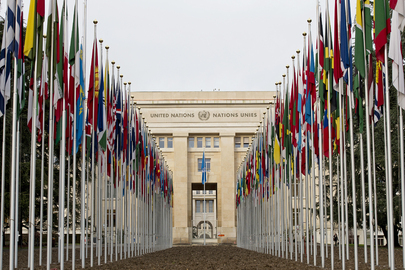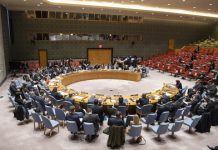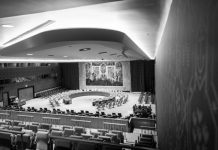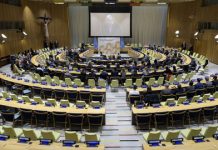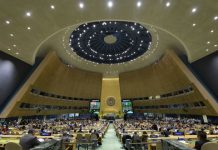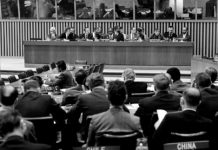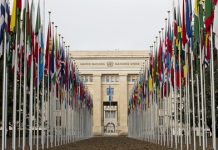Most of Gaza 40,000 dead are women and children, says UN rights chief
As the number of Palestinians killed in Gaza passes the dark milestone of 40,000, UN rights chief Volker Türk called on Thursday for an end to the killing “once and for all” – and the release of all hostages.
His comments came as negotiators meet in Qatar to renew efforts to halt the conflict and avert a wider war.
The UN rights chief said that “most of the dead are women and children” – and that it was “overwhelmingly” because of “recurring failures by the Israeli Defense Forces to comply with the rules of war”.
Mr. Türk maintained that on average around 130 people are being killed every day in Gaza.
His Office has documented serious violations of international humanitarian law by the Israeli military and Palestinian armed groups, including Hamas fighters.
Meanwhile in Gaza, a fortunate few in the devastated enclave have enjoyed a little respite from the ongoing conflict, at a restored water pumping station in Khan Younis.
With more, here’s Louise Wateridge, spokesperson for the UN agency for Palestine refugees, UNRWA:
“The last time I visited this well was at the end of April and it was destroyed, surrounded by shrapnel and potential unexploded ordinance…I saw so many children not only collecting drinking water for their families, but also enjoying cooling off and playing under the water, spilling over from filling the larger tanks…a basic joy that is available to so few here.”
The water station is the largest in Khan Younis and operates for eight hours a day now, serving 100,000 displaced people. It provides some relief for families forced to travel huge distances in sweltering temperatures to fetch water, Ms. Wateridge explained.
Growing concerns for Yemenis battered by relentless rain and flooding
Exceptionally heavy rain and deadly flash-flooding in Yemen have compounded the already dire situation for tens of thousands of people, UN humanitarians said on Thursday.
In a joint alert, UNICEF, the UN Children’s Fund, and UNFPA, the UN sexual and reproductive health agency, said that the emergency has shattered people’s lives in several Yemeni governorates and particularly in Hudaydah, Hajjah, Sa’ada and Taizz.
“Homes, shelters, and belongings have been swept away,” the UN agencies reported, adding that within 72 hours of the floods, more than 80,000 people received emergency food rations, hygiene items and women’s sanitary products.
More torrential rains are forecast to continue into September and aid teams have warned that people’s needs are already huge, after years of conflict between the Saudi-led coalition in support of the government, and mainly Houthi opposition fighters.
Since early August, more than 180,000 people have been affected by the flooding and at least 50,000 have been displaced in Hudaydah governorate alone.
Bahrain’s treatment of prisoners comes under human rights spotlight
Finally, to Bahrain, where the treatment of prisoners is the focus of an appeal by leading human rights experts, amid protests by detainees and allegations of exposure to soaring temperatures.
In a call to the Bahraini authorities, the independent experts – who report to the UN Human Rights Council in Geneva – urged “immediate action to safeguard the rights of all prisoners in Jau prison”.
Among the experts, who are not UN staff, Special Rapporteur on torture, Alice Edwards, highlighted worrying allegations that authorities “have cut air conditioning”, exposing prisoners to temperatures in excess of 50 degrees Celsius – or 122 Fahrenheit.
Since March this year and in response to prisoners’ demands for better conditions, the Special Rapporteur maintained that those held in some buildings are “often” denied medical care “and do not have regular access to adequate food and safe drinking water”.
These conditions “could prove fatal for some detainees” said Ms. Edwards, who along with other independent rights experts urged the Bahraini authorities “to enter into meaningful dialogue with the prisoners and their families about improving conditions”.
Music composed and produced by Joachim Harris. All rights reserved
Source of original article: United Nations (news.un.org). Photo credit: UN. The content of this article does not necessarily reflect the views or opinion of Global Diaspora News (www.globaldiasporanews.com).
To submit your press release: (https://www.globaldiasporanews.com/pr).
To advertise on Global Diaspora News: (www.globaldiasporanews.com/ads).
Sign up to Global Diaspora News newsletter (https://www.globaldiasporanews.com/newsletter/) to start receiving updates and opportunities directly in your email inbox for free.


